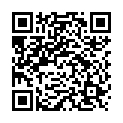|
|
|
| Module code: E2434 |
|
|
2S (2 hours per week) |
|
3 |
| Semester: 4 or 6 |
| Mandatory course: no |
Language of instruction:
German |
Assessment:
[still undocumented]
|
E2434 (P200-0039) Electrical Engineering and Information Technology, Bachelor, ASPO 01.10.2018
, optional course, general subject
MST.SMP (P200-0039) Mechatronics and Sensor Technology, Bachelor, ASPO 01.10.2012
, semester 4, optional course
MST.SMP (P200-0039) Mechatronics and Sensor Technology, Bachelor, ASPO 01.10.2019
, semester 4, optional course
MST.SMP (P200-0039) Mechatronics and Sensor Technology, Bachelor, ASPO 01.10.2020
, semester 4, optional course
|
30 class hours (= 22.5 clock hours) over a 15-week period.
The total student study time is 90 hours (equivalent to 3 ECTS credits).
There are therefore 67.5 hours available for class preparation and follow-up work and exam preparation.
|
Recommended prerequisites (modules):
None.
|
Recommended as prerequisite for:
|
Module coordinator:
Prof. Dr. Martin Löffler-Mang |
Lecturer: Prof. Dr. Martin Löffler-Mang
[updated 11.03.2021]
|
Learning outcomes:
After successfully completing this module, students will be able to read and understand complex articles from scientific journals (e. g."Sterne und Weltraum" or "Spektrum der Wissenschaften"). Based on what they have read, students will give a talk of approx. 60 minutes on a self-chosen modern physics topic and defend it in a discussion group. In addition, they will also actively participate in the discussion and ask questions on their classmates´ topics.
[updated 06.11.2020]
|
Module content:
Current topics from the field of modern physics, such as for example:
Theory of relativity
Quantum mechanics
Neutrinophysics
Gravitational waves
Nuclear astrophysics
Elementary particles
Global circulation
[updated 06.11.2020]
|
Teaching methods/Media:
Students will choose a topic from modern physics (from the 20th century onwards) and search for two or three current papers in scientific journals and secondary literature on the subject. Using this material they will put together a presentation, hold it in the seminar and encourage the audience to think about and discuss their topics.
[updated 06.11.2020]
|
Recommended or required reading:
Articles from scientific journals, such as for example,
Spektrum der Wissenschaften
Physik in unserer Zeit
Sterne und Weltraum
[updated 06.11.2020]
|


